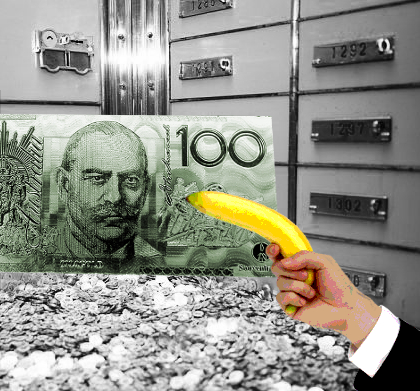New plan concerns charities

The Government says its new laws will help fight foreign espionage and interference.
It wants to create a new offence that would make it illegal to covertly interfere with Australian politics on behalf of another country, coupled with a new register for foreign lobbyists, and a ban on political donations from overseas.
Charities say they will be caught in the crossfire.
But the Government says they will not be prevented from receiving and using foreign donations for non-political activities.
However, the changes do seek to prevent charities from engaging in political activities, as long as their expenditure is raised by Australians.
Global Health Alliance Melbourne (GLHAM) says there is a very broad definition of what is “political”.
“So there's a very, very successful research program which is leading the search for a cure for HIV, that's based here in Melbourne,” GLHAM executive director Misha Coleman said.
“And that lab receives very significant funding from US-based organisations, like the Foundation for Aids Research.”
The group is also concerned that the definition of “parties” under the proposed legislation is unclear.
“When there are sort of references to third parties, to charities, to other entities, number one, it is not clear whether that covers medical research and international NGOs,” Ms Coleman said.
“And secondly, the definition of political is a very, very subjective definition.”
GLHAM says the ramifications could be very widespread.
“Across Australia … the medical research industry employs about 16,000 staff,” Ms Coleman said.
“It has a combined revenue of around $1.3 billion and there's a vast amount of money that comes in from entities like the Wellcome Trust, like the Bill and Melinda Gates Foundation, that keeps that industry afloat and keeps those cures being developed.”
Tim Costello, chief advocate of World Vision Australia, said charities should “only speak and only act about what it's trying to do”.
“Take care of homeless — you start as a charity giving out blankets. Then you say; ‘Actually, we need some more social housing, we're not going to get rid of it’,” he told the ABC.
“Suddenly you've strayed under this overreach into a political activity.
“When you think about the foreign aspect of it, Gates is really the only major foreign donor to philanthropy. Chuck Feeney up in Queensland gave a lot and that was for health.
“As soon as health professionals who might be receiving dollars from a Chuck Freeney stray into; ‘We need better research in medical areas, the Government should fund this’, that's political.”
Philanthropy Australia expects a large part of the health and medical research sector to be affected.
The group says charities in Australia are already very well regulated.
“Basically, charities can't undertake partisan political advocacy. They can only undertake non-partisan political advocacy,” Philanthropy Australia’s advocacy and insight manager Krystian Seibert said.
While not a blanket ban, the proposed foreign donations measures could affect the funding of charities from overseas during or in the run up to an election.
“The problem is that the Electoral Act, in terms of how it defines what's called political expenditure, is very broad,” Mr Seibert said.
The Australian Electoral Commission defines political expenditure as funding for the public expression of views on a political party or a candidate in an election.
Its definition includes “public expression of views on an issue in an election by any means”.








 Print
Print